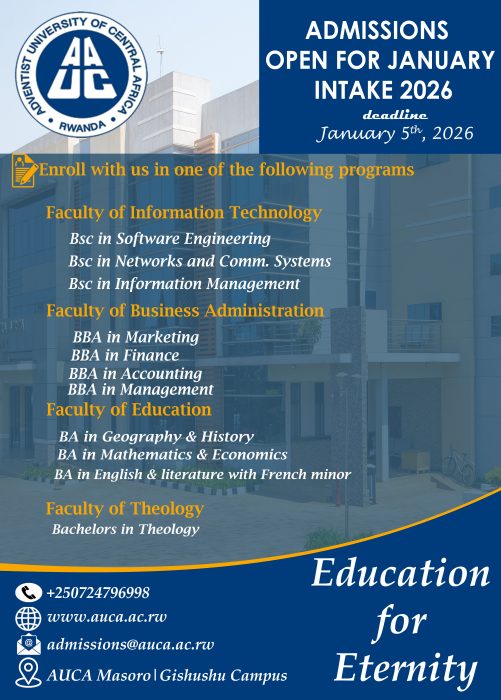4.4 Specific Objectives
The Masters of Business Administration (MBA) offers the students an opportunity to learn management, human resource management, finance, big data analytics, project management and accounting. Theories and concepts that are global and can fit into the business organizations of the 21st century. This program ensures that the student is able to perform in today’s economy and ever-changing business world. The program lays a strong foundation of teaching skills in business studies in schools. The holders of MBA and MSC are expected to work in both public and private sectors, including being able to comfortably handle and teach in schools and colleges. Specifically, the program seeks:
- To enable students to understand the nature of accounting as a discipline and how accounting can be used to enhance sustainable development of their organization and or national economy;
- To offer advanced employable skills that can be used in both the public and private sector and industry or creators of jobs;
- To increase students’ knowledge and competencies to enable them fit into the accounting, business, management and finance world;
- To prepare the students for advance education (PhD) in Accounting, Finance, Management, Human Resource Management, and other post-graduate studies;
- To equip students with research, technical, and analytical skills essential for their own development and also the development of the economy at
4.5 Competences
At the successful completion of MBA option in accounting major concentration, student should be able to;
- Address technical accounting aspects in life both in profit and nonprofit making organizations
- Prepare and decisively analyze financial reports
- Critically assess the financing options available for the for organizational optimal performance
- Explain how to conduct and interpret financial statements analysis using financial ratios
- Apply auditing practices and internal accounting controls
- Make rational decisions based on accounting information
FOUNDATIONAL MODULE S
The Foundational Module s are designed to give the student a broad view of knowledge and the acquisition of relevant and useful skills in their respective areas of study. Foundational Module s introduce students to a discipline or a Module of study and are pivotal in their future career paths. Due to their size and the wide range of student backgrounds, they present both unique instructional challenges and outsized opportunities for impact across the University. Foundational Module s aim at fulfilling the objective of the Adventist Education through the wholistic approach of training individuals mentally, spiritually, physically and socially. Every student, unless exempted, is required to take the following foundational Module s in addition to the major or concentration and minor Module s.
4.5 Modules Categories
- Foundation Module s /modules (40 Credits)
| Code | Module | Credits | Module Credit | Contact Hours | SDL | Total |
| RELT 9111 | Philosophy of Christian Ethics | 3 | 10 | 45 | 55 | 100 |
| STAT 9112 | Applied Statistics | 3 | 10 | 45 | 55 | 100 |
| REMT9113 | Advanced Research Methodology | 3 | 10 | 45 | 55 | 100 |
| HREM 9114 | Human Resource Management | 3 | 10 | 45 | 55 | 100 |
| Total | 12 | 40 | 180 | 220 | 400 |

